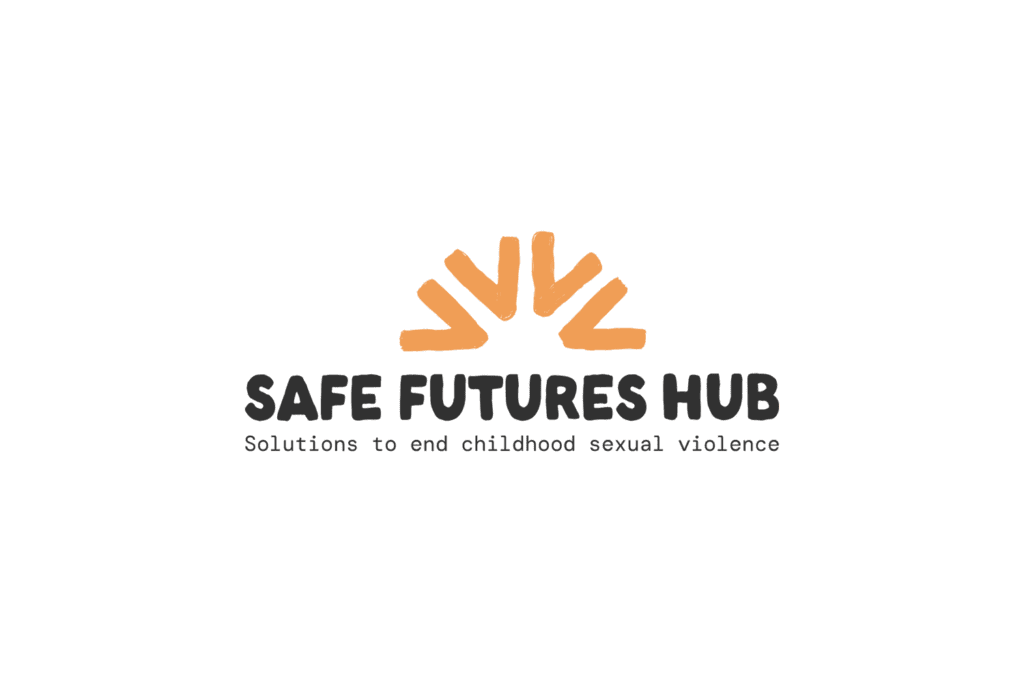Solutions to stop a global crisis: “Building Safe Futures: Solutions to End Childhood Sexual Violence” provides a roadmap to end childhood sexual violence

Safe Futures Hub, WeProtect Global Alliance – News
The new report from Safe Futures Hub calls for practical action to protect children worldwide
Cape Town, South Africa
Safe Futures Hub, a joint initiative of Together for Girls, WeProtect Global Alliance, and the Sexual Violence Research Initiative (SVRI) has today launched “Building Safe Futures: Solutions to end childhood sexual violence.” This comprehensive evidence review highlights what works to prevent and respond to childhood sexual violence in low- and middle-income countries.
“‘Building Safe Futures’ is not just another report. It is a roadmap for change,” said Nicolas Makharashvili, Director of Safe Futures Hub. “This research provides critical guidance for investments, legislative action, policy development, and program implementation to reduce the prevalence and impact of childhood sexual violence. It ensures that advocates, policymakers, and frontline workers worldwide can access, adapt, and apply effective solutions to end this crisis.”
With input and endorsement from 23 leading violence prevention organizations across the globe and with the support of Oak Foundation, the systematic review of evidence updates previous reviews and profiles effective ways to end childhood sexual violence. It screens and classifies dozens of interventions using the INSPIRE framework, and offers insights for program implementation and further research. The review will be the first in a series of dynamic, living resources from Safe Futures Hub to drive more effective and scalable solutions.
“This is not a time for incremental change; it is a time for bold, decisive action,” said Daniela Ligiero, president and CEO of Together for Girls. “We know what works to prevent childhood sexual violence. We have enough evidence to act now for millions of children, but we need political will and investment. With the first-ever Global Ministerial Conference on Ending Violence Against Children approaching next month, we have a unique opportunity to act on the evidence, work together, and leverage commitment for a safer future for all children and adolescents.”
The report addresses an important gap in knowledge by focusing on evidence from lower- and middle-income countries, recognizing that much of the existing global evidence highlights research from high-income countries. Examples of effective intervention types highlighted in the review include:
- Adolescent development clubs (such as the Empowerment and Livelihood for Adolescents program in Uganda) can reduce the risk of sexual violence for adolescents and youth, especially during vulnerable periods. These clubs teach skills like earning and saving money, and making healthy choices. They can also offer fun activities, emotional support, and confidence-building.
- Parenting programs can help caregivers reduce risks and talk about, prevent, and respond to sexual violence. The review found examples of impactful programs focused on parents of preschoolers and programs focused on parents of adolescents (such as “My Mother is My Best Friend” in Sri Lanka).
- Teacher training focused on delivering inclusive, engaging, age-appropriate prevention lessons (such as a preschool sexual abuse prevention program that was implemented in Iran) can boost children’s protective factors, such as improving knowledge and self-efficacy skills.
- Cash-plus interventions targeting women and adolescent girls combine various activities, including cash transfers and other elements such as skills training, community engagement, and sexual violence prevention sessions. An example is Girl Empower in Liberia, which provided unconditional cash transfers and life skills training for adolescent girls in addition to caregiver support.
“Safe Futures Hub is designed to meaningfully include underrepresented perspectives that have often been excluded or under-represented,” said Liz Dartnall, executive director of SVRI. “We recognise the vital need for greater collaboration, innovation, and diversity in combating this complex and grave issue. By combining this review with a framework on practice-based knowledge and an online interactive platform, the Safe Futures Hub aims to move beyond desk-based research, ensuring that the voices of program practitioners and participants are more strongly reflected.”
Ultimately, the research has a hopeful message.
“We are in the midst of a global crisis, with millions of children facing escalating violence. But there is hope. This review shows that practical, scalable solutions exist to prevent and disrupt this cycle,” said Iain Drennan, Executive Director of WeProtect Global Alliance. “Childhood sexual violence can—and must—be stopped. We have the tools; now it’s up to us to act, scale these solutions, and end sexual violence against children. Together, we can create a safer world for every child.”
Read the “Building Safe Futures” report at safefutureshub.org.
About the Safe Futures Hub
Safe Futures Hub is a joint initiative between the Sexual Violence Research Initiative, Together for Girls, and WeProtect Global Alliance focused on solutions to end sexual violence against children. We work in partnership, understanding the urgent need for more collaboration, innovation, and diversity in order to combat this complex and horrific issue. Together, we know we can create a safer future for all children. Learn more by visiting safefutureshub.org.